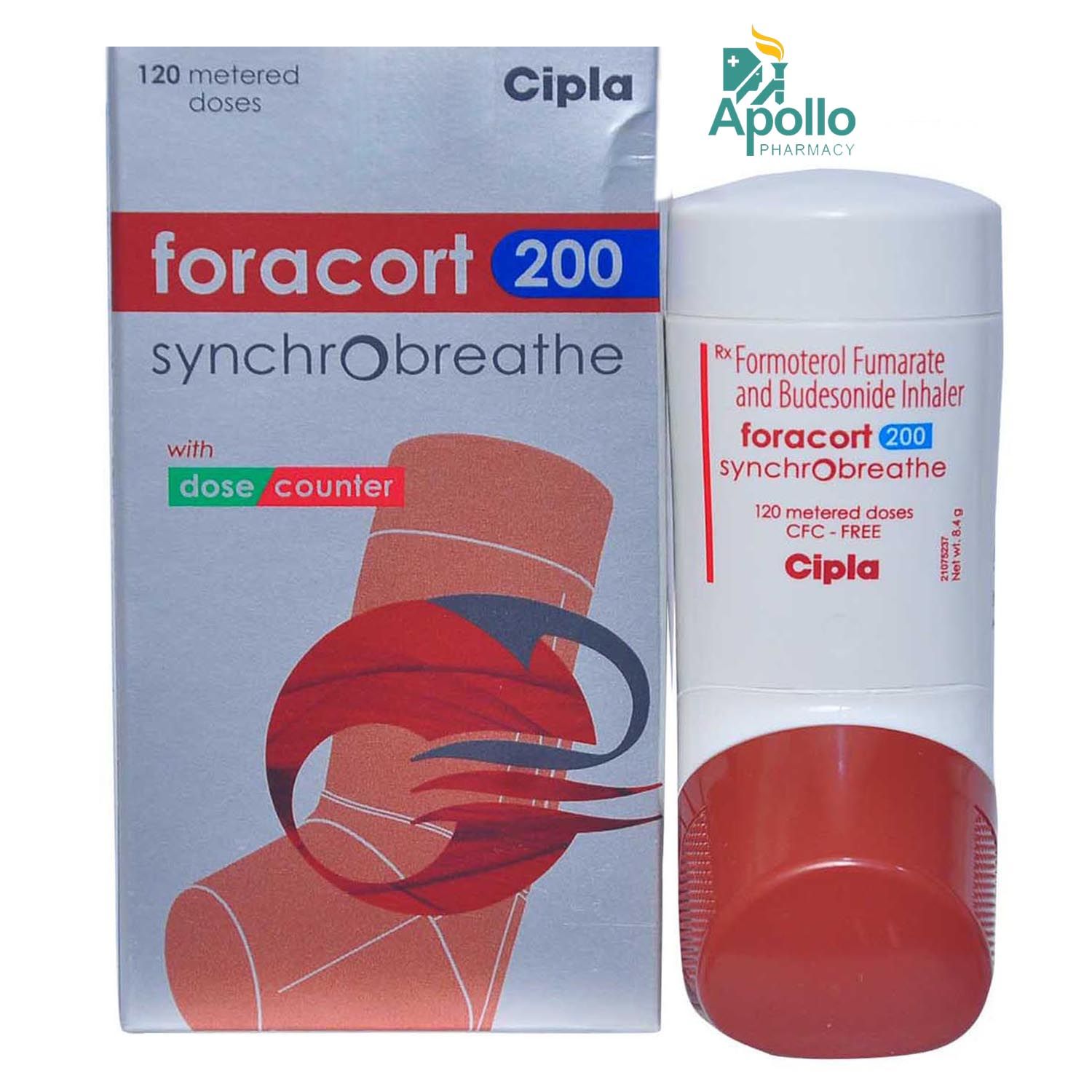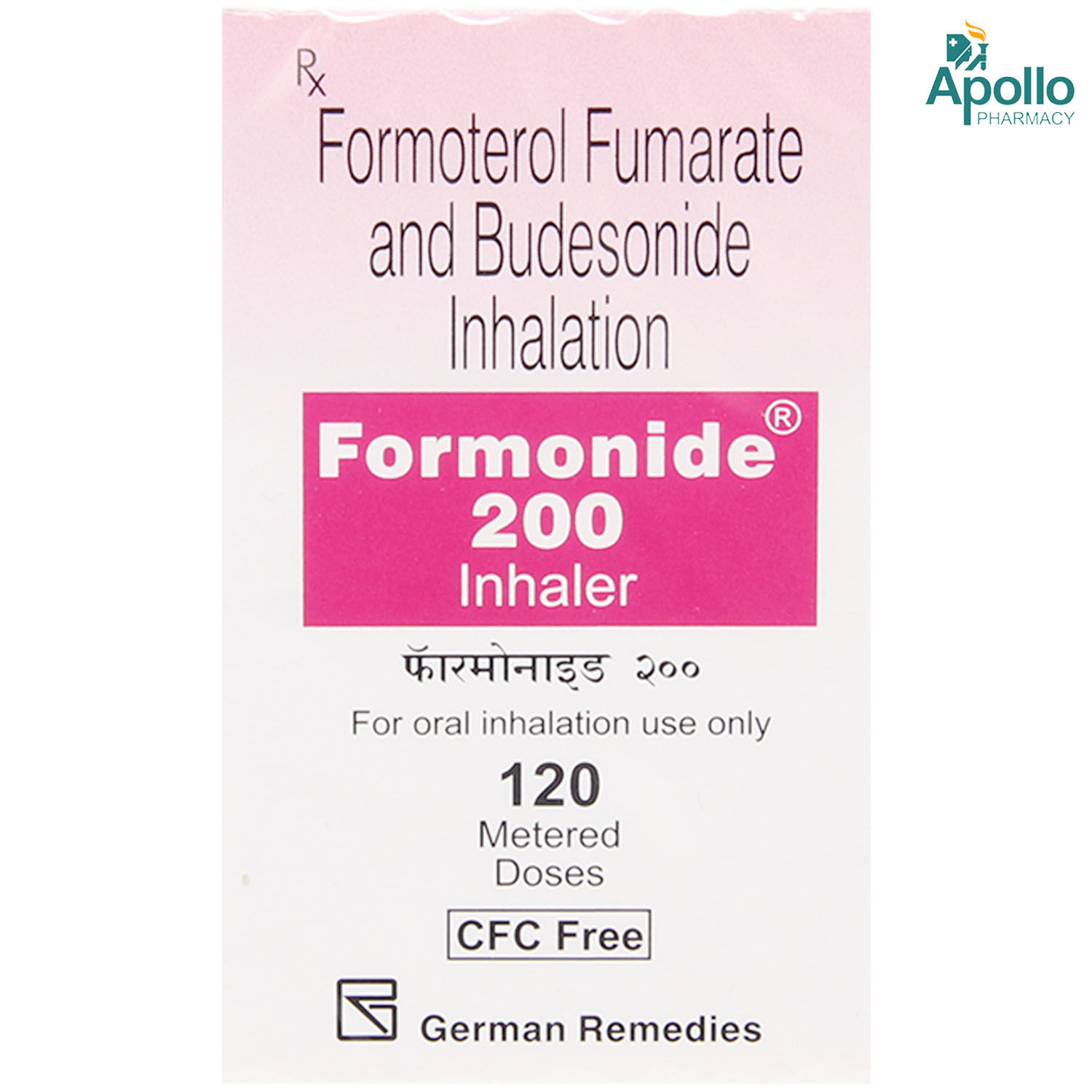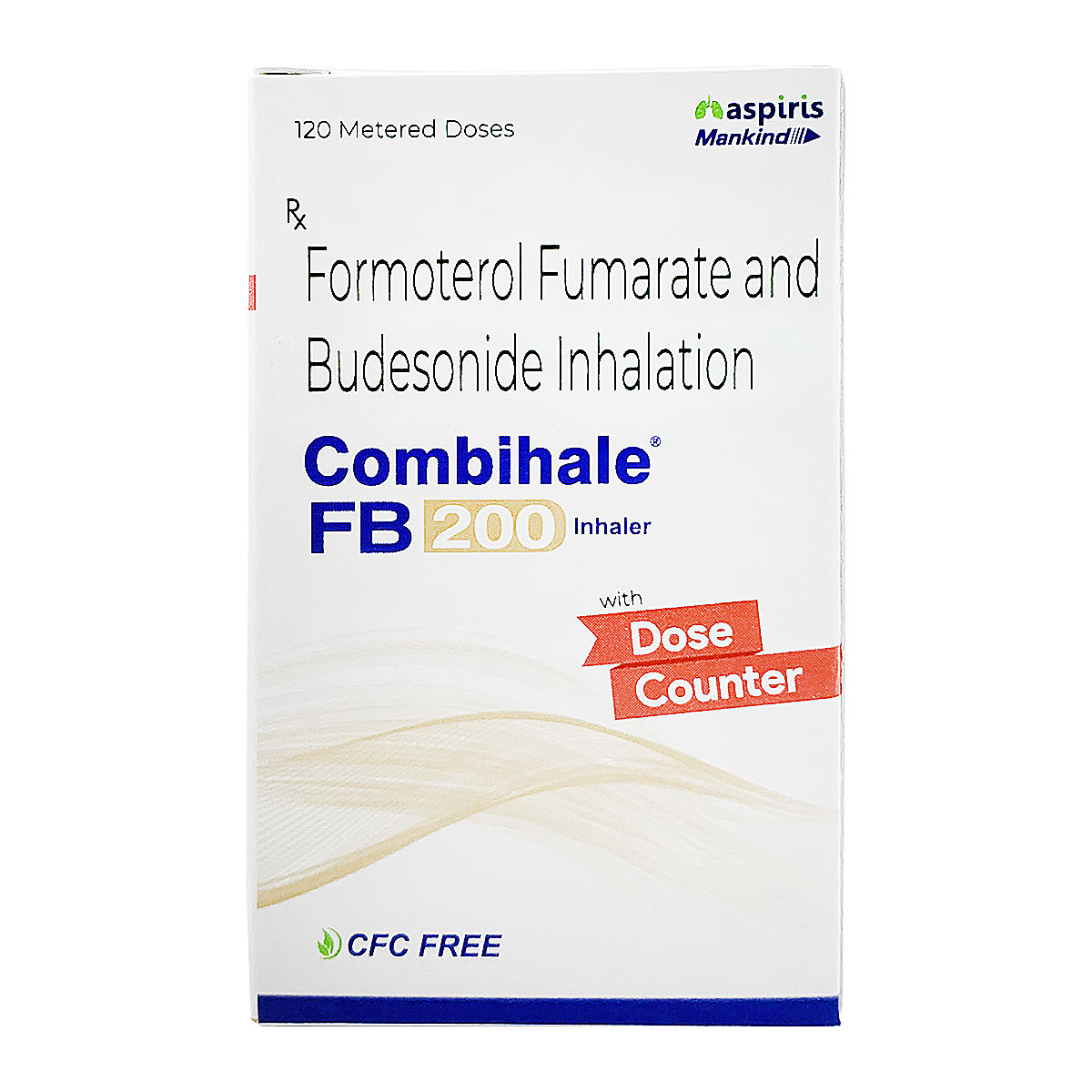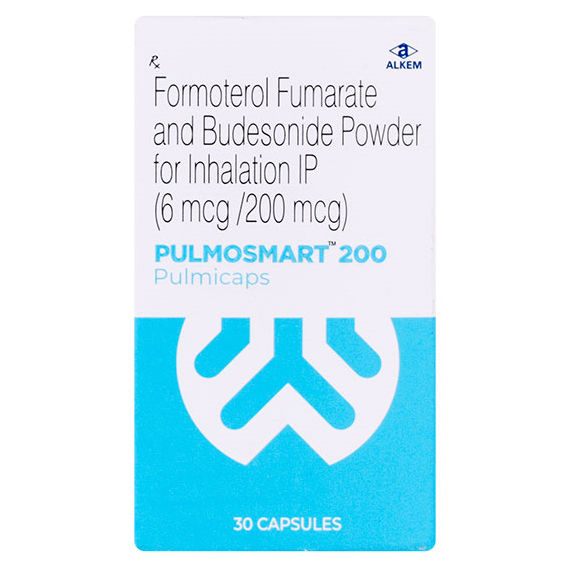Quikhale FB 200 Capsule 10's
₹50.4*
MRP ₹56
10% off
₹47.6*
MRP ₹56
15% CB
₹8.4 cashback(15%)
Free Delivery
With Circle membership
(Inclusive of all Taxes)
This offer price is valid on orders above ₹800. Apply coupon PHARMA10/PHARMA18 (excluding restricted items)
Know Your Delivery Time
Provide Delivery Location

Selected Pack Size:10
10 ₹50.4
(₹5.04 per unit)
Out of stock
30 ₹172.8
(₹5.76 per unit)
In Stock
Available Offers
 Prescription drug
Prescription drugWhats That

Secure Payment

India's Most Trusted Pharmacy

Genuine Products
Composition :
Manufacturer/Marketer :
Consume Type :
Return Policy :
Expires on or after :
About Quikhale Fb 200 mg Capsule
Quikhale Fb 200 mg Capsule is used to treat asthma symptoms and chronic obstructive pulmonary diseases (COPD). Asthma is a chronic (long-term) respiratory condition in which airways narrow, swell, and produce extra mucus, leading to difficulty breathing. COPD is a group of lung diseases with emphysema (shortness of breath) and chronic bronchitis (inflammation of the lining of bronchial tubes).
Quikhale Fb 200 mg Capsule is a combination of two drugs: Budesonide (corticosteroid) and Formoterol (LABA - long-acting beta-agonists or bronchodilator). Budesonide belongs to the corticosteroids class that works by reducing the irritation and swelling by acting inside the nasal passage and airways lining cells and stopping the release of certain chemicals responsible for causing inflammatory reactions and allergies. Thereby, it provides relief from sneezing, runny or blocked nose and sinus discomfort. On the other hand, Formoterol belongs to LABA - long-acting beta-agonists or bronchodilators that relax and widen respiratory airway muscles, making it easier for asthma and COPD patients to breathe.
Use Quikhale Fb 200 mg Capsule as prescribed. Your doctor will recommend how often you use Quikhale Fb 200 mg Capsule based on your medical condition. Some people may experience fungal infection in the mouth, headache, sore throat, hoarse voice, upper respiratory tract infection, flu, cough, back pain, increased heart rate, and trembling. Most of these side effects of Quikhale Fb 200 mg Capsule do not require medical attention and gradually resolve over time. However, if the side effects persist or worsen, please consult your doctor.
If you are allergic to lactose (a form of sugar) or have lactose intolerance, Quikhale Fb 200 mg Capsule or any other ingredients, please tell your doctor. If you are pregnant or breastfeeding, it is advised to inform your doctor before using Quikhale Fb 200 mg Capsule . Quikhale Fb 200 mg Capsule is not recommended for children below 6 years of age. If your breathing worsens or you often wake up at night with asthma, experience chest tightness in the morning or last longer than usual, please consult a doctor immediately. These might be signs indicating that your asthma is not controlled properly and requires an alternate or additional treatment. Regular monitoring of potassium levels is recommended while taking Quikhale Fb 200 mg Capsule as it may cause low potassium levels in the blood. If you have high blood pressure, diabetes, hypokalaemia (low potassium levels in the blood), glaucoma, cataracts, osteoporosis (weak bones), fits, immune system problems, chickenpox, measles, thyroid, lung, heart, liver or adrenal gland problems, inform your doctor before taking Quikhale Fb 200 mg Capsule . Prolonged use of LABA (long-acting beta-agonists) or vasodilator drugs may cause symptoms like chest pain (angina), increased blood pressure (hypertension), a fast and irregular heart rate (palpitation), headache, tremors, and nervousness.
Uses of Quikhale Fb 200 mg Capsule
Directions for Use
Medicinal Benefits
Quikhale Fb 200 mg Capsule is a combination of two drugs, Budesonide and Formoterol, that are used to treat symptoms of asthma and chronic obstructive pulmonary disease (COPD). Budesonide belongs to the class of corticosteroids that work by reducing irritation and swelling by acting inside cells of the nasal lining and stopping the release of certain chemicals in the body that cause inflammatory reactions. Thus, it provides relief from sneezing, runny or blocked nose and sinus discomfort. Formoterol belongs to the class of bronchodilators that works by relaxing muscles and widening the airways of the lungs. Thus, it makes breathing easier.
How Quikhale Fb 200 mg Capsule Works
Storage
Side Effects of Quikhale Fb 200 mg Capsule
Fungal infection in the mouth
Headache
Sore throat, hoarse voice
Upper respiratory tract infection
Flu, cough
Back pain
Increased heart rate
Shaking or trembling
What if I have taken an overdose of Quikhale Fb 200 mg Capsule
Drug Warnings
If you are allergic to lactose, Quikhale Fb 200 mg Capsule or any other ingredients, please tell your doctor. If you are pregnant or breastfeeding, it is advised to inform your doctor before using Quikhale Fb 200 mg Capsule . Quikhale Fb 200 mg Capsule is not recommended for children below 6 years of age. If your breathing worsens or you often wake up at night with asthma, experience chest tightness in the morning or lasts longer than usual, please consult a doctor immediately as these might be signs indicating that your asthma is not controlled properly and requires an alternate or additional treatment. Regular monitoring of potassium levels is recommended while taking Quikhale Fb 200 mg Capsule as it may cause low potassium levels in the blood. Avoid contact with people who have infections or who are sick as Quikhale Fb 200 mg Capsule may weaken the immune system causing infections easily. If you have high blood pressure, diabetes, hypokalaemia (low potassium levels in the blood), glaucoma, cataracts, osteoporosis (weak bones), fits, immune system problems, chickenpox, measles, thyroid, lung, heart, liver or adrenal gland problems, inform your doctor before taking Quikhale Fb 200 mg Capsule .
Diet & Lifestyle Advise
Eat a healthy diet and exercise regularly to strengthen your breathing muscles and boost your immune system.
Avoid foods such as cabbage, beans, garlic, onions, shrimp, pickled food, dried fruits, fried foods, carbonated drinks, wine, bottled lemon and lime juice as it may worsen asthma symptoms.
Do meditation, deep breathing, regular exercise and try progressive muscle relaxation techniques to get relief from stress and reduce the risk of an asthma attack.
Quit smoking as it may reduce the effectiveness of the Quikhale Fb 200 mg Capsule and irritate the lungs worsening breathing problem.
Learning breathing exercises will help you move more air in and out of your lungs.
Habit Forming
Therapeutic Class
Quikhale Fb 200 mg Capsule Substitute

Foracort 200 Synchrobreathe Inhaler
by AYUR
₹3.68per tabletBudamate 200 Transhaler 120 mdi
₹50.60per tabletFormonide 200 Inhaler 120 mdi
₹2.98per tabletBudamate 200 Transcaps 30's
₹5.76per tabletDigihaler FB 200 Inhaler
by AYUR
₹2.98per tablet
Product Substitutes
Alcohol
Caution
The interaction of Quikhale Fb 200 mg Capsule with alcohol is unknown. Please consult a doctor before consuming alcohol with Quikhale Fb 200 mg Capsule .
Pregnancy
Caution
The safety of Quikhale Fb 200 mg Capsule in pregnant women is unknown. Therefore, it is given to pregnant women only if the doctor thinks benefits outweigh risks.
Breast Feeding
Caution
It is unknown whether Quikhale Fb 200 mg Capsule is excreted in human milk. It is given to breastfeeding mothers only if the doctor thinks benefits are greater than risks.
Driving
Safe if prescribed
Quikhale Fb 200 mg Capsule usually does not affect your ability to drive or operate machinery.
Liver
Caution
Use Quikhale Fb 200 mg Capsule with caution, especially if you have a history of Liver diseases/conditions. The dose may be adjusted by your doctor as required.
Kidney
Safe if prescribed
If you have any concerns regarding the use of Quikhale Fb 200 mg Capsule in patients with Kidney problems, please consult a doctor.
Children
Caution
Quikhale Fb 200 mg Capsule is not recommended for children below 6 years as the safety and effectiveness were not established. However, please consult a doctor before giving Quikhale Fb 200 mg Capsule to children.
FAQs
Country of origin
Manufacturer/Marketer address
Disclaimer
Author Details
We provide you with authentic, trustworthy and relevant information
























